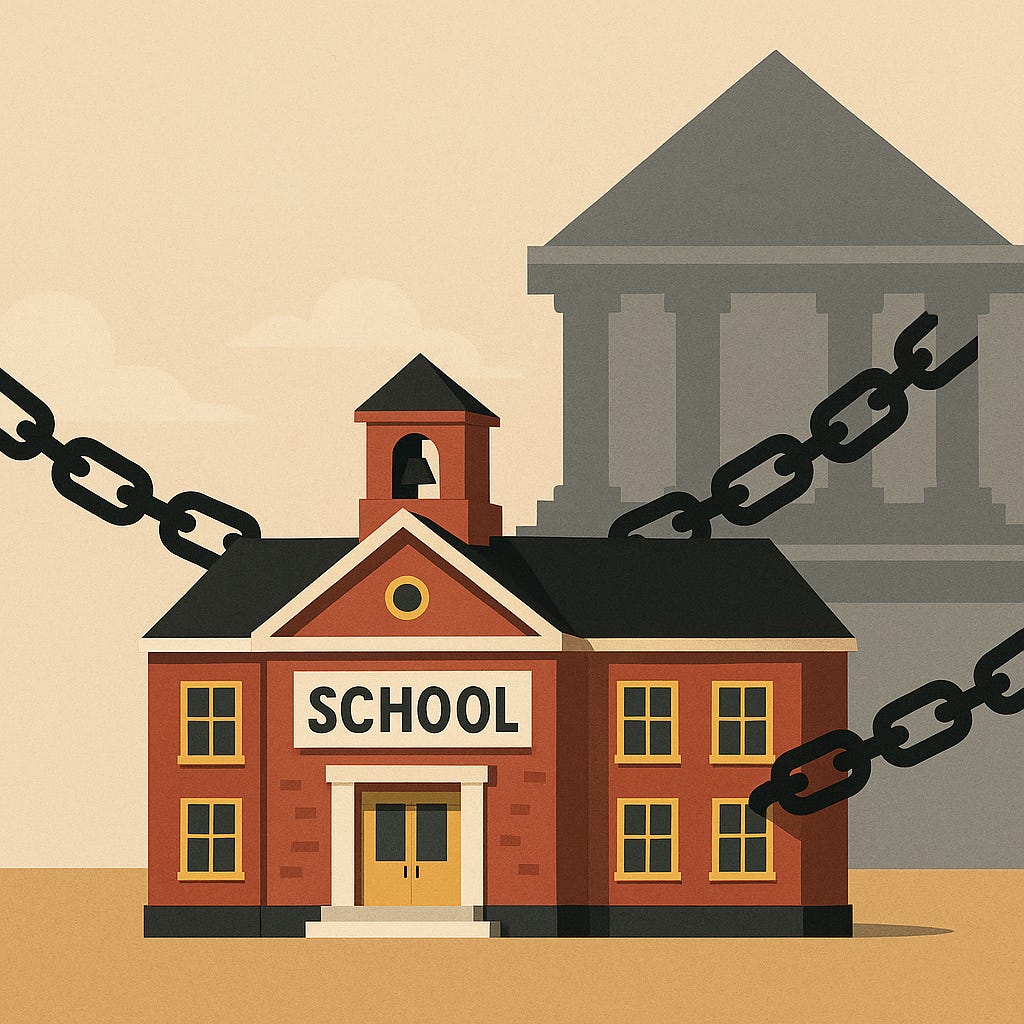The Quiet Centralisation of Schools: A Warning Against Misplaced Control
When the academy system was first conceived, it was sold as a modest revolution. Schools would be freed from the dead weight of bureaucracy. Headteachers would be given the space to lead according to local needs. Excellence would be fostered not by mandates, but by responsibility.
It was never a perfect system. No system is. But at its best, the academy model protected a simple principle: that those closest to the students are often best placed to serve them.
Now, almost silently, that principle is being eroded. Recent government proposals — dressed in the language of consistency and safeguarding — move to reclaim control over the very schools that were once encouraged to think independently. New regulations aim to tighten what academies can teach, how they can hire, and how they must align themselves with centralised standards.
The motive, as always, is presented as benevolent. Uniformity is offered in the name of fairness. Standards are invoked as shields against decline. Yet a Stoic might urge us to look beyond the slogans to the substance.
Autonomy is not the enemy of excellence; it is often its precondition. Centralised control may indeed make management neater. But education is not a neat enterprise. It thrives on local knowledge, on human judgement, on the imperfect but vital art of leadership. To imagine that wisdom can be replaced with templates is a bureaucrat's fantasy, not an educator’s reality.
There is also a deeper risk — one rarely named in public, but quietly known in practice. That levelling for the sake of consistency can become a levelling downward. That schools which have flourished under the freedom to innovate may find themselves tethered to the pace of the slowest mover. That, in seeking to bring all schools up to standard, we instead suppress the few that had already exceeded it.
No one would argue that struggling schools should be left alone. Intervention has its place. But it is a strange kind of reform that punishes success in the name of fairness. Not every variation is a failure. Sometimes it is the sign of life.
What is most concerning is not simply that autonomy is being reduced. It is the quiet implication behind the move: that teachers and leaders cannot be trusted. That judgement is too dangerous to leave in human hands. That compliance, not character, must be the measure of a school’s success.
If this vision prevails, the results will not be visible immediately. Schools will still function. Students will still sit exams. Brochures will still be printed with the slogans of opportunity. But slowly, a different kind of system takes hold — one where initiative atrophies, where innovation shrinks, and where risk-taking in the name of excellence becomes a professional hazard.
A society cannot pretend to honour education while distrusting educators. It cannot call for leadership while insisting on obedience. Freedom, properly understood, is not the enemy of standards. It is the ground in which real standards are cultivated — not by fear of inspection, but by pride in one’s craft.
The academy system was flawed, but its founding impulse was right. Responsibility closest to the student is not a luxury. It is a necessity. To reverse that hard-won lesson under the soft camouflage of “wellbeing” and “accountability” is a mistake whose cost will be felt not in ministerial portfolios, but in classrooms.
There is a place for oversight. There is a place for guidance. But if government policies continue to mistake management for excellence, and uniformity for fairness, then the freedom that once animated reform will wither. And with it, the possibility of schools being places not just of instruction, but of true formation — moral, intellectual, human.
Education demands standards. But it also demands trust. If the government forgets that, it will find that what it gains in control, it loses in spirit. And that is a price no society should be willing to pay.
Miklós Cseszneky


